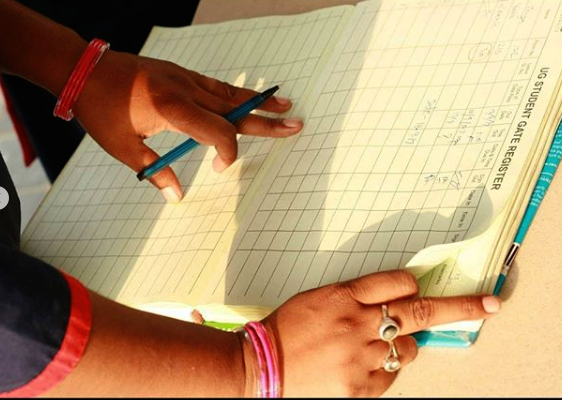Procedural vs. Substantive– Defining the role of the AUEC vis-à-vis the HoR
by Aggam Walia, UG’22 In the past three years, the Ashoka University Election Commission (AUEC) has

By Sanya Chandra (Batch of 2021)
The working conditions of the support staff at Ashoka are nothing short of abysmal. This is because of multiple reasons— the bhaiyas and didis on this campus work under a strict hire and fire policy the details of which the student body is not privy to. They are hired and managed by a third-party organisation. Ashoka has very little to do with the management of the support staff, and herein lies the first layer of alienation from the college and its administration. Moreover, they often face mistreatment from their management, the wardens, and sadly, the students as well. What amplifies the cause for concern is the fact that the grievances they have are transmitted by word of mouth and hence, are very difficult to corroborate or get to the crux of.

An instance of this maltreatment was when the bhaiyas and didis working in the residences were told to clean two or more floors in the same time span and with the same pay for which earlier they had to clean one. What is disheartening is also the fact that this issue was only taken up once it became a monumental cause for enragement with the students at Ashoka. This is simply because it hits hard when you’ve established a relationship with the staff working on your floor and it comes to your notice that they look physically unwell and fatigued because of being overworked in an institution you call home. Why this situation is disheartening is because of the lack of agency of the support staff. A change could only be created when the students got involved.
The Community Well-Being Minister, Khushi Singh, as a part of the initiatives to make their lives on campus better, talked about going to the higher ends of the administration to take this issue up with them. The Grievance Redressal Committee (GRC) is the organisation which has the power to amend policy regarding the hiring and firing of employees based on issues like misconduct by them. Deepali Sheth, the head of the GRC, took this issue up and has assured the Ministry and groups working in tandem with it that the older system of a Didi/Bhaiya being assigned one floor would be restored. What was refreshing to see is that this change was implemented swiftly, which showed in the words of a Didi who works in SH4.
So what this instance brings me to is one understanding— it’s definitely about ushering in positive change, but more importantly, it’s about creating conditions such that the next time something like this happens, they can feel comfortable enough to voice their concerns and expect a difference on their own.

Herein comes the efficacy of the Complaints Box initiative which was brought up with Bhaskar Mishra, the Vice President of Operations. He primarily looks into the working of services provided at Ashoka and has communicated that he would like to deal with said issues by hearing about them from the grassroot level— the Bhaiyas and Didis themselves. To this effect, the complaint box is kept in the basement of the admin block, where there are no CCTV cameras to as so not trace the person who has issued the complaint. The key to this box is kept with Bhaskar Mishra himself.
While the initiative itself is commendable, it has encountered some systemic hurdles. The box has not received complaints even with the existing scope for betterment. This is because of the existing institutional hierarchy in place and the lack of trust experienced with the administration. The staff is not allowed to move away from the place they are assigned to during their 9-10 hour shifts. Moreover, they have expressed concern over not feeling comfortable enough to go to the Admin block after their shifts, in anticipation of being subject to wanton questions about where they are going and why.
This is where the role of the student body comes into play- if we could help them frame and write their complaints or even go to the extent of depositing it for them, it would be a positive step in the direction of inclusivity and respect for the people who make our lives on campus easier. The Didis and Bhaiyas on campus are struggling to receive better treatment on this campus. This can only be achieved if we— a body of people who have considerably louder voice in this system than them— take the responsibility of creating a change.